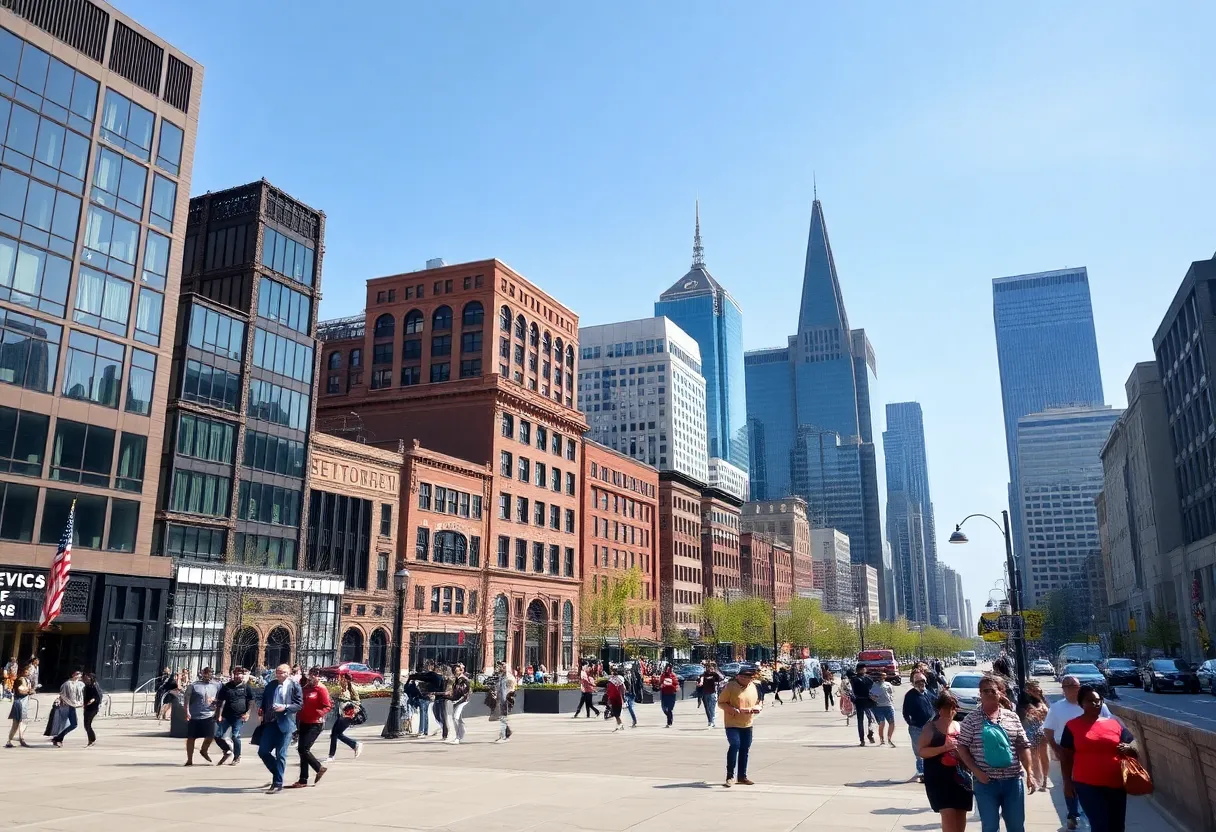

Detroit's skyline illustrating its population increase and urban development
Want to target the right audience? Sponsor our site and choose your specific industry to connect with a relevant audience.
Prominent brand mentions across targeted, industry-focused articles
High-visibility placements that speak directly to an engaged local audience
Guaranteed coverage that maximizes exposure and reinforces your brand presence
Interested in seeing what sponsored content looks like on our platform?
May’s Roofing & Contracting
Forwal Construction
NSC Clips
Real Internet Sales
Suited
Florida4Golf
Click the button below to sponsor our articles:
Sponsor Our ArticlesDetroit has experienced a significant population increase for the second consecutive year, with the U.S. Census Bureau reporting an increase of nearly 6,800 residents from 2023 to 2024. The city’s population now stands at 645,705, marking a notable rise from previous estimates. Contributing factors include new housing developments and a revised methodology for counting migrants. Cities across Michigan are also seeing population gains, suggesting a positive trend for the state as it addresses economic challenges and strives for sustainable growth.
Detroit has experienced a notable population increase for the second consecutive year, with new estimates from the U.S. Census Bureau revealing that the city’s population grew by nearly 6,800 people from 2023 to 2024. The latest estimate places Detroit’s population at 645,705, a significant rise from just 620,000 three years ago.
The 2023 population estimate was also revised upward, now reported as 638,914, indicating stronger growth than initially recorded. This latest surge follows a gain of more than 4,000 residents between 2022 and 2023, which was over double earlier estimates for that period.
According to city spokesperson John Roach, this unexpected growth is seen as positive news for Detroit. A range of developmental projects, including new condominiums, apartments, and the renovation of existing homes, have played a significant role in attracting new residents to the city.
Detroit is not alone in its upward trend. Other cities in Michigan have also reported population gains; Grand Rapids added about 1,847 people, Warren grew by 534, and Sterling Heights experienced an increase of 646 from 2023 to 2024. Moreover, in Washtenaw County, townships such as Saline, Scio, and Pittsfield each recorded over 3% population growth during the same timeframe.
A key factor behind the increase in Detroit’s population estimates is a revamped methodology for counting migrants, which now includes both legal and unauthorized individuals. This revision has contributed to a broader understanding of the city’s demographic dynamics.
Overall, Michigan’s population has reached approximately 10,140,459, marking an increase of 57,103 people compared to the previous year. This gain is particularly notable given that the state has faced challenges such as more deaths than births and a net outflow of residents to other states. However, the significant rise in international migration has played a crucial role in reversing the state’s population decline in recent years.
Nationally, new counting methods have resulted in the recognition of approximately 1.1 million more international migrants between July 2022 and July 2023. Michigan has seen a shrinking annual net loss to other states, and the gap between deaths and births is also narrowing.
As of the latest estimates, Detroit is now the 26th most populated city in the United States, moving up from 27th and surpassing Portland in terms of population. Mayor Mike Duggan attributes this increase to various factors, including a decline in crime rates, job creation, and significant housing developments. These elements have contributed to the return of young people to Detroit.
Despite these recent population gains, analysts caution that Detroit’s overall population is expected to decline by 1.1% by 2050 if current trends persist. This would mark a stark contrast to the population boom the city experienced in the past, when it boasted over 1.5 million residents in the 1950s. Moving forward, sustainable growth strategies will be essential for the city.
Demographers and city planners express cautious optimism about continued population growth but are mindful of potential economic uncertainties that may affect future development. Notably, the foreign-born population in Detroit is projected to increase and may reach 14% by 2050 if immigration policies align favorably with local job opportunities.
While the city celebrates its population increase, challenges remain in ensuring that this growth translates into genuine economic opportunities and improved living conditions for all residents. As Detroit works to capitalize on its demographic shifts, maintaining quality of life and social equity will be essential components of its strategy going forward.
News Summary The 2025 EHA Congress celebrated its 30th anniversary, bringing together hematology experts worldwide.…
News Summary HR Acuity has proudly received the Great Place To Work® certification for the…
News Summary Recent developments in the investigation of the Tonti Train Crash from 1971 reveal…
News Summary A new report indicates a staggering 1100% increase in deepfake fraud in Q1…
News Summary A shooting in the parking lot of the Michigan State Fair resulted in…
News Summary The Hoʻōla iā Mauiakama Long Term Recovery Group has launched a new volunteer…